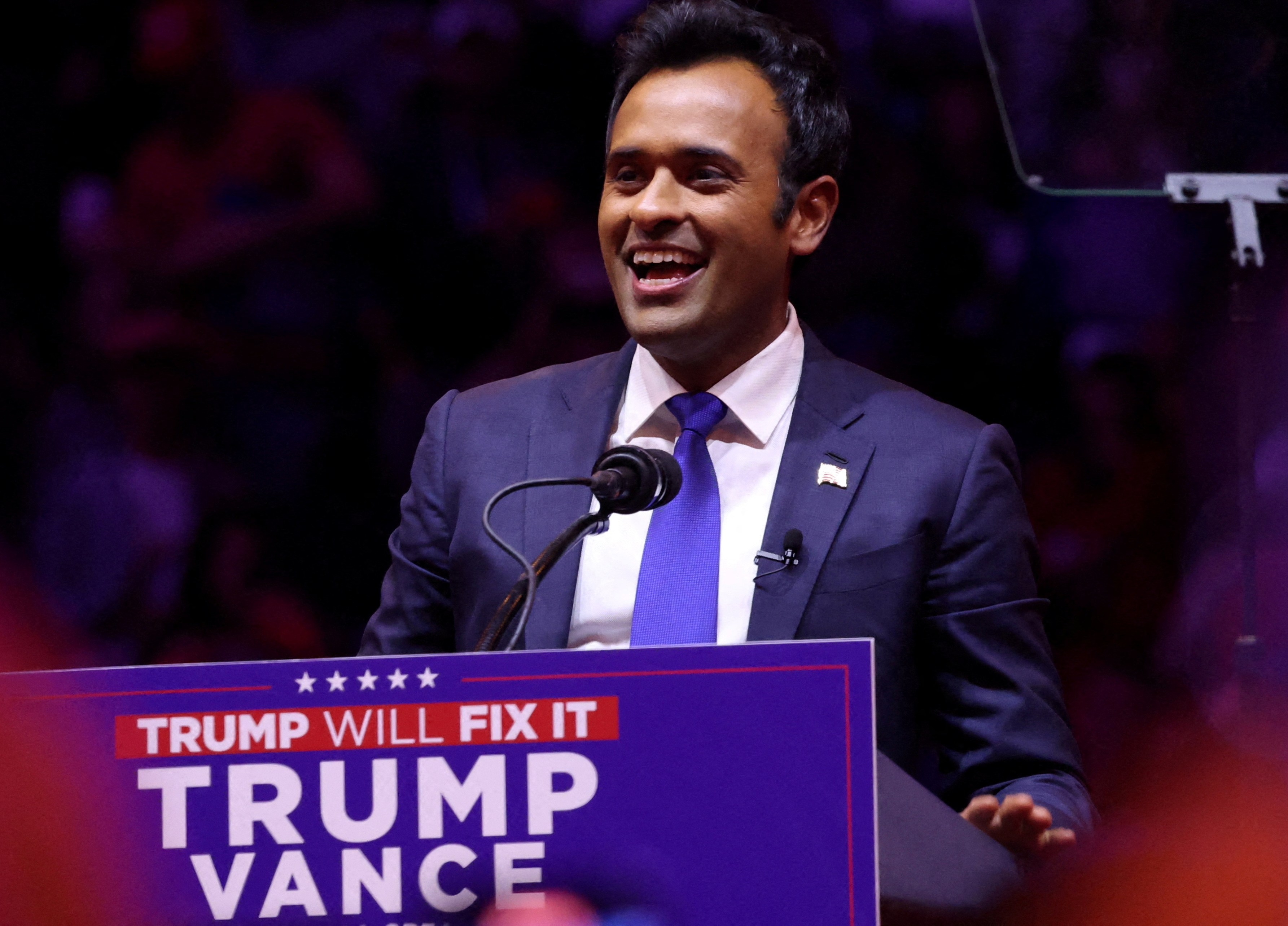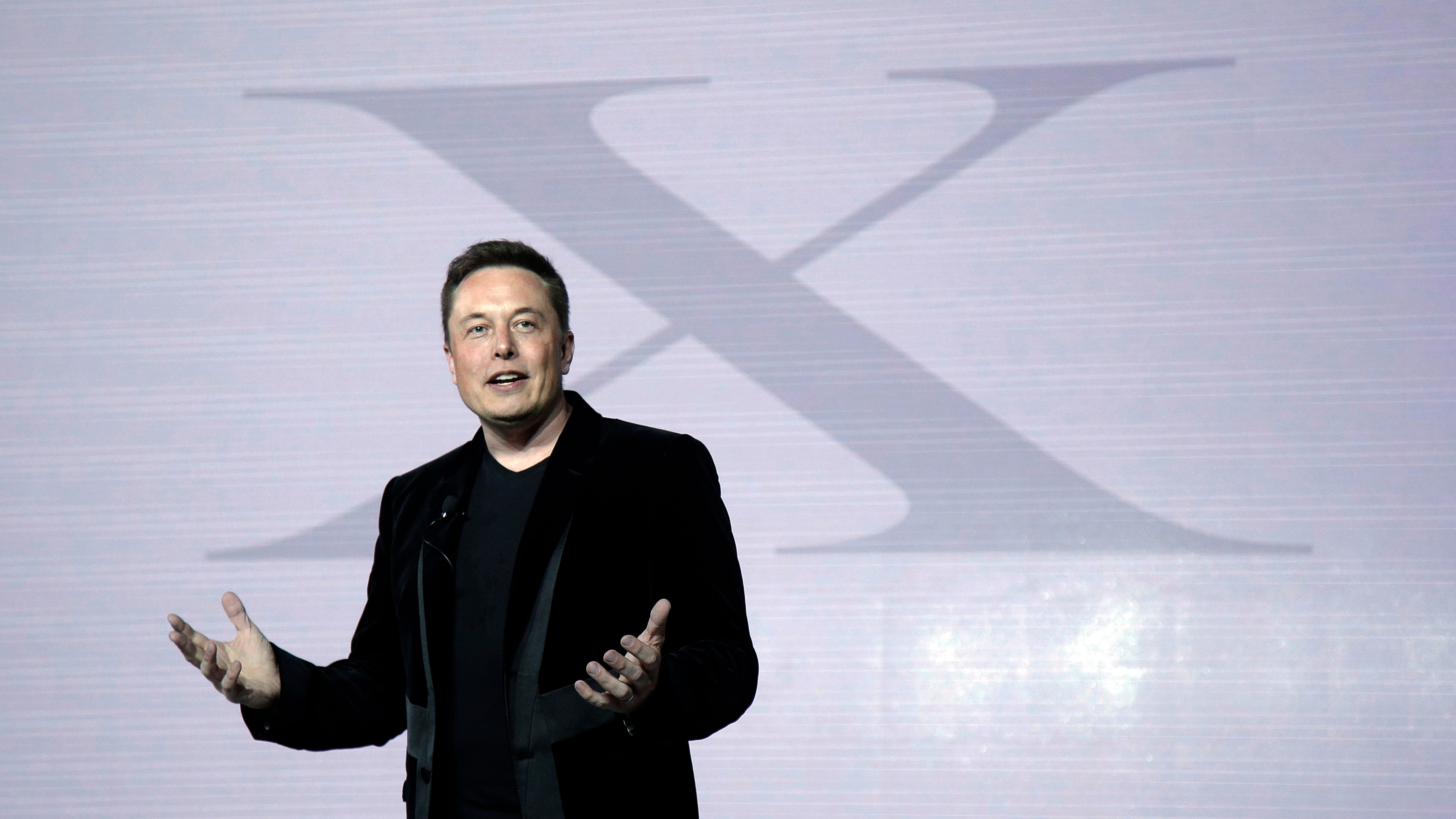Elon Musk pledged “mass head-count reductions” for US civil servants, including any who refuse to work in the office full-time, as part of a plan to save $2 trillion from the federal budget.
As president, Donald Trump would also scrap thousands of regulations issued “by millions of unelected, unappointed civil servants” to slim down the government, Musk wrote in a joint article with Vivek Ramaswamy in the Wall Street Journal.
The Trump advisers, who were also not elected by the American public, said their new Department of Government Efficiency, known as Doge, would return America to the founding principle that it is run by elected representatives rather than bureaucrats “who view themselves as immune from firing thanks to civil service protections”.
Unions are planning to resist the cuts, which have sparked widespread discussion among civil servants about whether to stay on or seek pay-offs. Their fears deepened with the announcement that Marjorie Taylor Greene, an outspoken Trump loyalist and conspiracy theorist, will chair a sub-committee in Congress to assist with the restructuring of government.
“We are getting prepared for a really, really big fight,” said Randy Erwin, president of the National Federation of Federal Employees, which represents 110,000 of the 2.3 million federal employees.
Advertisement
Musk, 53, the world’s richest man who is a naturalised American citizen, fired about 80 per cent of Twitter’s workforce and scrapped many of its user rules after buying the company and renaming it X. He has vowed to cut $2 trillion from the $6.7 trillion annual federal budget.
“If federal employees don’t want to show up, American taxpayers shouldn’t pay them for the Covid-era privilege of staying home,” Musk wrote with Ramaswamy, 39, a pharmaceutical company millionaire who ran against Trump for the Republican nomination but became a supporter.
• Matt Gaetz withdraws as Trump’s nominee for AG
“With a decisive electoral mandate and a 6-3 conservative majority on the Supreme Court, Doge has a historic opportunity for structural reductions in the federal government,” they added.
Erwin emphasised the impact on military veterans — who make up almost 30 per cent of the federal workforce — of Doge plans to rewrite staff contracts to make them easier to fire. “Every person in this country needs to know that if Elon Musk and Vivek Ramaswamy get their way, nearly half a million veterans will go jobless,” he said. “The very objective of this so-called Department of Government Efficiency is hostile to our cherished American veterans.”
Advertisement
• Analysis: Is Elon Musk already outstaying his welcome at Trump’s side?
Doge was initially viewed sceptically because it shares a name with a cryptocurrency backed by Musk that was founded as a joke. But like the Doge coin, the advisory body has quickly become a serious enterprise with billions of dollars at stake.
Musk and Ramaswamy said Doge would target the $500 billion-plus in annual spending they said was unauthorised by Congress or being used in unintended ways. This included the Corporation for Public Broadcasting, cash for international organisations and Planned Parenthood, the largest provider of reproductive health services including abortions.
“Conventional wisdom holds that statutory civil service protections stop the president or even his political appointees from firing federal workers … but the statute allows for ‘reductions in force’ that don’t target specific employees,” Musk and Ramaswamy wrote. “The statute further empowers the president to ‘prescribe rules governing the competitive service’.
“With this authority, Mr Trump can implement any number of ‘rules governing the competitive service’ that would curtail administrative overgrowth, from large-scale firings to relocation of federal agencies out of the Washington area.”
Advertisement
• Who are Trump’s cabinet picks? The positions and appointments so far
One blueprint for this was the move under Trump’s first term to transfer the headquarters of the Bureau of Land Management from Washington almost 2,000 miles west to Grand Junction, Colorado. This prompted 87 per cent of the 328 Washington-based staff to resign or retire.
Ramaswamy defended the idea of upending agencies after union complaints that staff would be forced out because of their children’s schooling or because of their spouse’s job in Washington.
He told Fox News: “They’ll say, ‘What happens to the people who live in Washington DC?’ Here’s the dirty little secret in the federal bureaucracy today, most people don’t even show up to work. So if you require most of those federal bureaucrats to just say, like normal working Americans, you come to work five days a week, a lot of them won’t want to do that … that creates a logic for many of those agencies being outside of DC in the first place.”
He added: “We expect certain agencies to be deleted outright.”
Advertisement
An audit of homeworking by the Office of Management and Budget in May found that 54 per cent of federal employees worked entirely in person. Of the 1.1 million eligible to work from home, 61.2 per cent of work hours were spent in person in the office or in the field with 228,000 employees, or 10 per cent of the civilian workforce, working remote full-time.
A study in 2022 found that salaries and benefits made up 4.3 per cent of the federal budget, or $271 billion, suggesting that even a 50 per cent reduction in staffing would shave a little over 2 per cent from the federal budget.
The biggest components of public spending are social security and Medicare — health insurance for retirees and people with disabilities — and the Medicaid insurance system for those on low incomes. Trump vowed on the campaign trail not to cut these provisions, which made up $3.8 trillion of federal spending last year, about half the budget.





